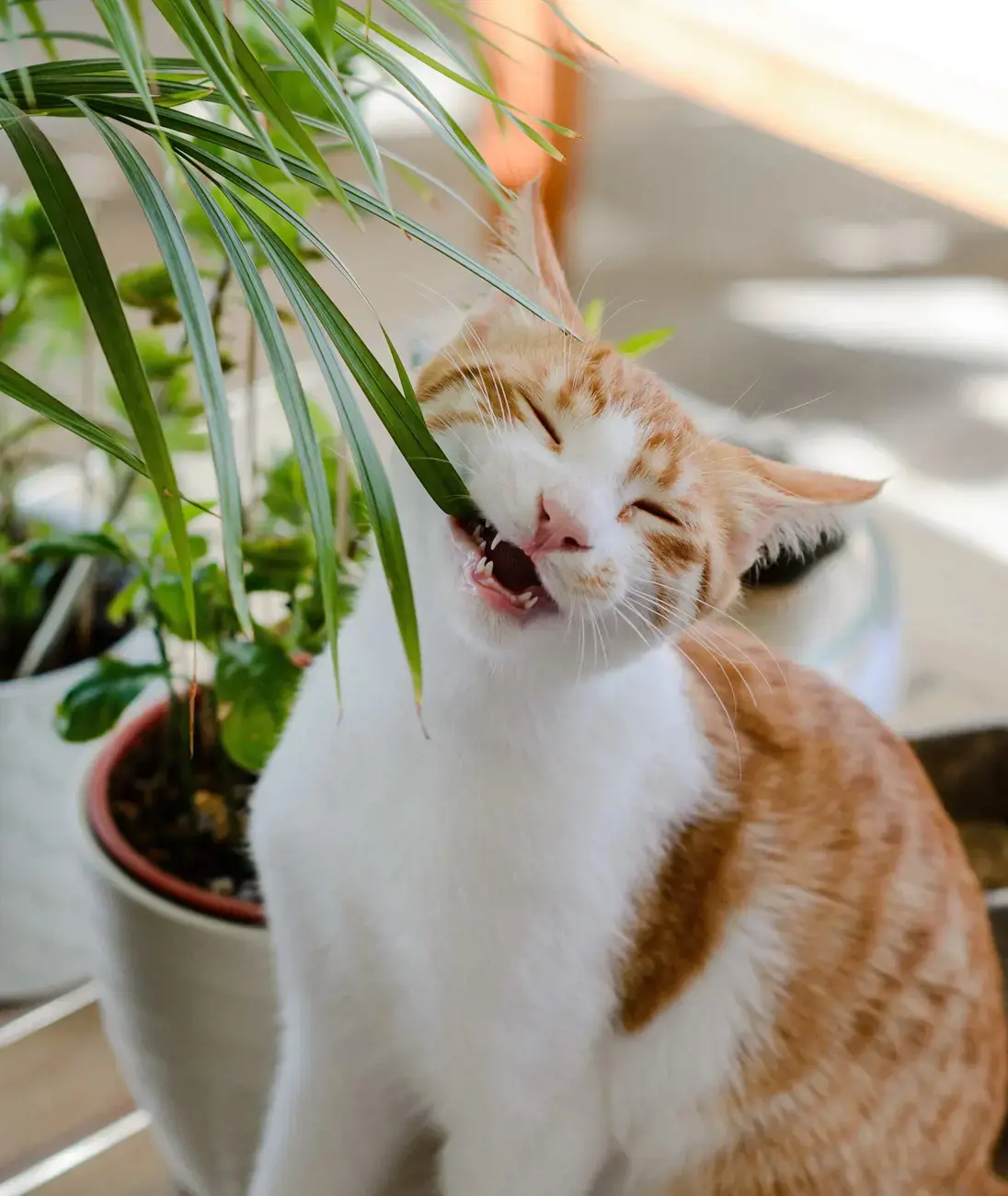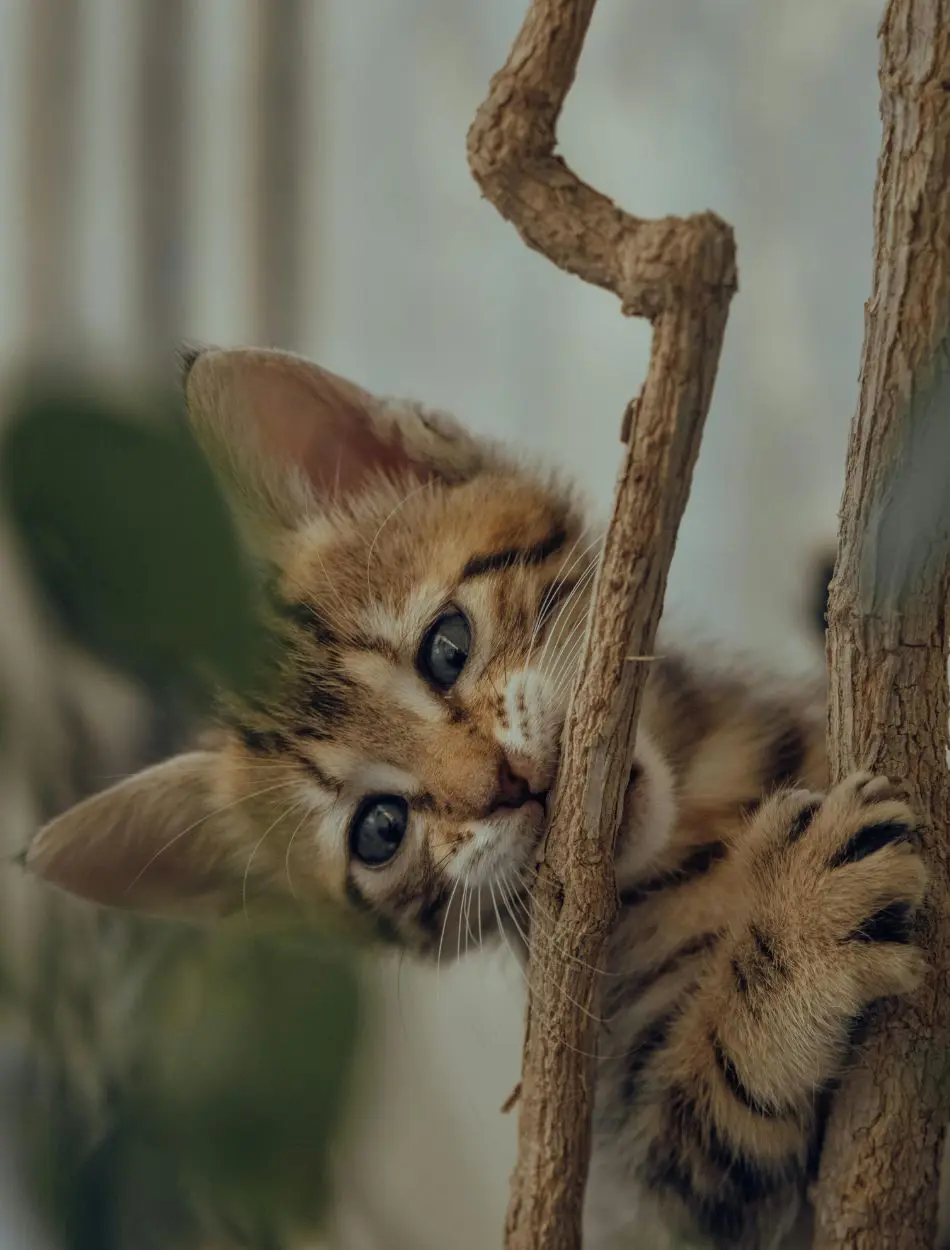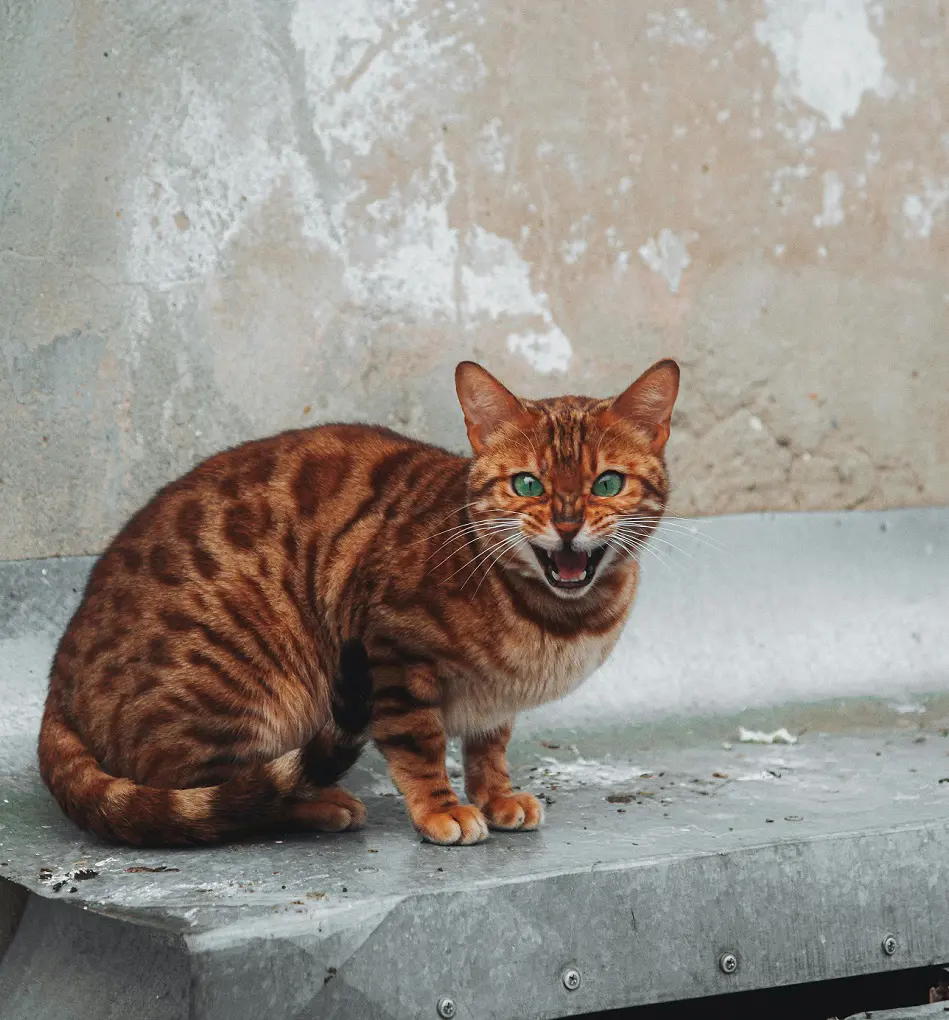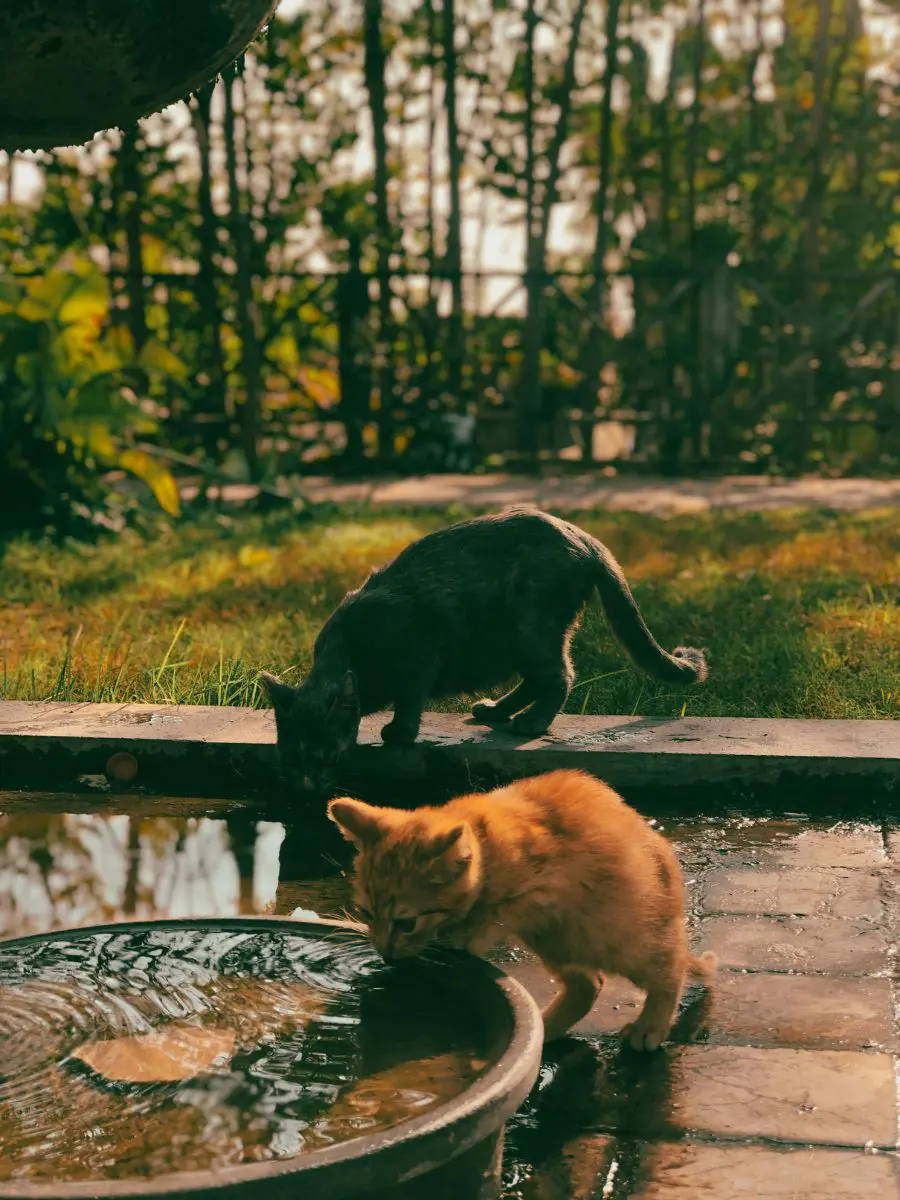Reasons Why Cats Spray & How To Address It
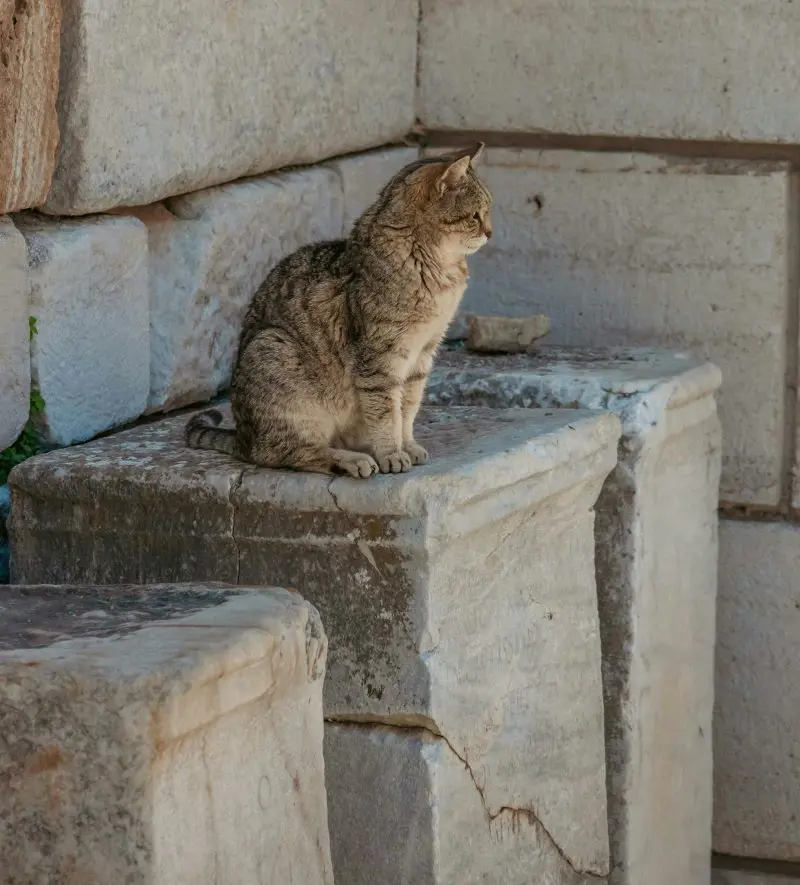
If you are a cat owner, you may have experienced them urinating or spraying outside of the litter box. You can't distinguish them as both have the same symptoms.
Spraying in cats may be behavioral issues or any health conditions such as marking their scent, attracting mates, and when they are fearful and anxious. If you are able to differentiate these issues, it will be a great help for your vet to address and reduce them with proper diagnosis and treatment.
What Is Cat Spray?
It is a distinct behavior that cat shows from their normal urination. It involves a cat standing upright, with a tail, and releasing urine onto a vertical surface. The cats urinate in a squat position, whereas they spray releasing scent marking in their territories.
When they spray, they will sniff intentionally or rub on the surface, back up to it, and raise their tail. The tail then quivers and they release a small amount of urine. Their feet may also tread on the floor. Sprayed urine contains oily secretions from the anal glands and their odor is more pungent than the normal ones. The cat spray smells like a mix of urine and feces, with strong, pungent, musky quality and a fishy smell. The odor is stronger than regular ones, making it hard to eliminate the scent.
1. Natural Behavior
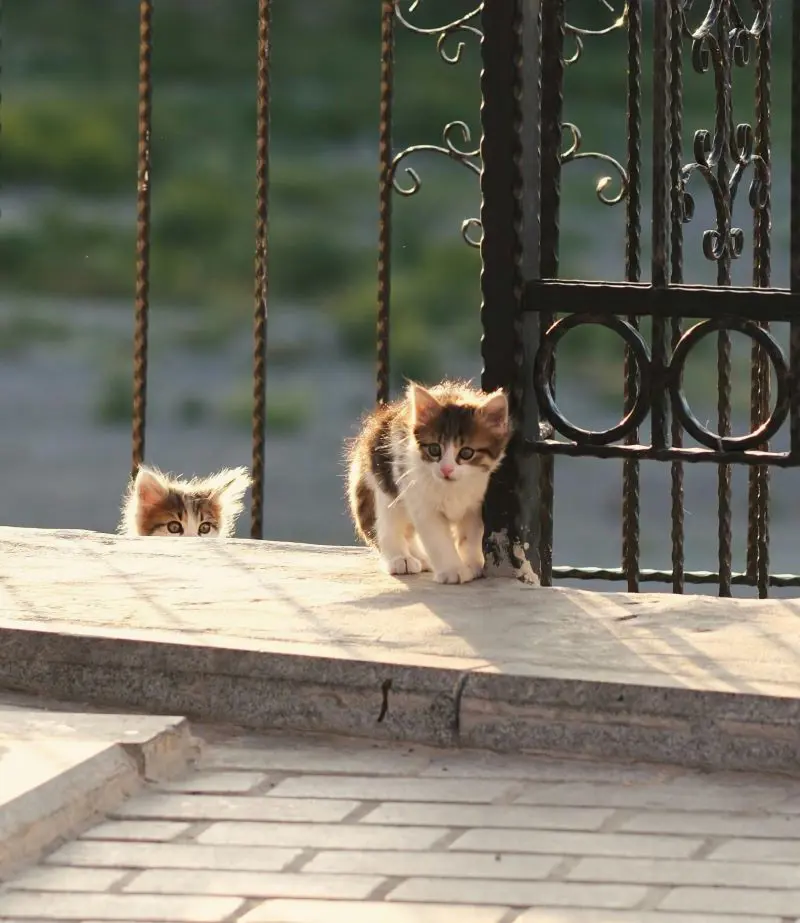
Cats can commonly urine-spray when they want because they want to mark their territory, which they prepare to defend. If any other cat comes in or shares the territory, they will know who the cat is and when the other one is there.
They are cautious animals concerned about potential threats in their area, especially at dawn and dusk. If your cat is regularly fed then your home becomes their core place within their territory. Just, because they can't have the same time view within your house and outside, they leave a mark with a spray.
2. Percieved Threat
Your cat marks the area when an unfamiliar threat is inside your home, such as new pets, suspicious strangers, or remodeling noise and confusion.
It is not a dirty way but is a response to changes in emotional state when they feel threatened. If they find any strangers or other feline friends, they mark them with the spray to communicate with others about their territory. Other than spraying, they can also defecate and sometimes scratch at their territory to signal they are not safe.
3. Litter Box Issues
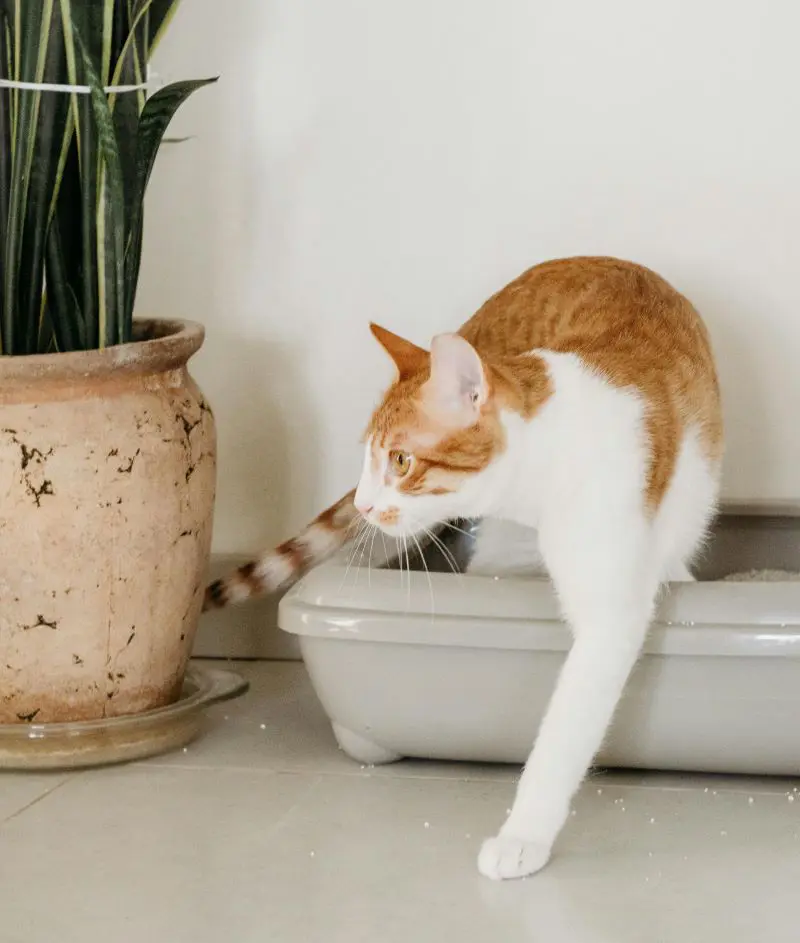
If your cat urinates outside their litter box, they might not be spraying. It might be small for them or the location might be too noisy. The smell of the litter box may not be right with bad smells around the box.
They have a stronger urge to go but can't get to the litter box too fast enough. They may pee outside the box sometimes due to the pain or discomfort they are facing due to the smaller litter box. Being a pet parent, if a cat is not using their litter box you should consult your vet to check whether there are issues or not.
4. Stress Or Anxious
Stress or anxiousness may be caused by changes in daily routine, introducing new pets or people in their home territory, or things like remodeling and construction.
When your cat's everyday routine or environmental factors are changed, they can feel stressed or anxious. Some may spray outside the litter box, while others spray on ground surfaces outside the home. They will surround themselves with their scent by spraying if they are stressed, anxious, and fearful.
5. Attract Mates
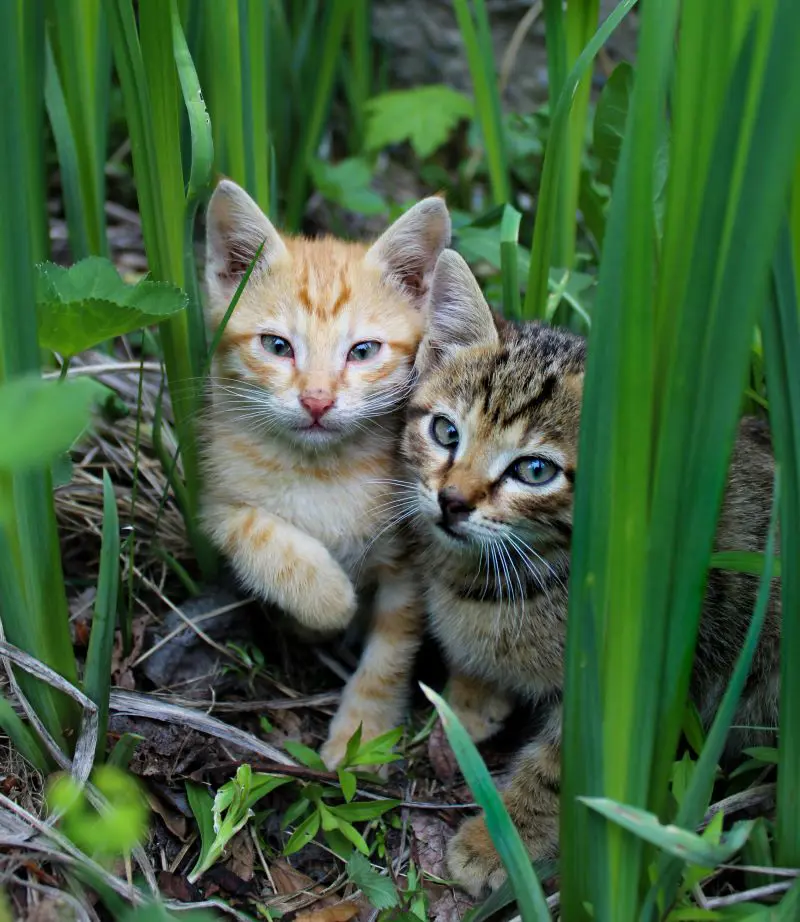
The spraying of urine is more common with intact male cats. The male cats especially spray to attract mates or communicate with females in the neighborhood. They will spray to gather information about their readiness for mating.
The perfume their spray scatters in the area contains pheromones, which signal their reproductive status with age and sex. The only way to reduce this is by neutering, which dramatically lowers testosterone levels in cats. Moreover, female cats in heat may go for spraying to signal their reproductive readiness.
6. Fear Or Insecurity
Cats are very sensitive animals and can get fearful or insecure when introduced to new environmental surroundings between new people and friends or even loud noises.
While suffering, these cats express their fear by urinating or spraying around the territory to make themselves feel at ease. Marking their territory helps to create a sense of security and control in unfamiliar surroundings. This behavior is usually seen in cats when they meet newer feline friends or during a home renovation.
7. Seeking Attention

Being social animals, cats crave interaction with their pet parents. They might spray in the house area to seek attention. They have their scent glands in their paws and near their tails.
When spraying increases, it is more likely a coincidence that they can attract their owners towards them for quality playtime or cuddle time inside a house. They leave their spray in a selective part of the house where their owners are more used to spending time so they can easily notify your presence. However, if their sprays start showing negative signs, they should learn that their behavior gets them identified.
8. Marking Scent
These feline friends have a strong sense of smell and use scent marking to give information to the other cats. They first spray and leave their scent on various surfaces, giving information on their sex, reproductive status, and territory claim.
By marking their territory with their scent, they are claiming ownership, deterring other cats. They choose main locations for spraying, such as tight doors, windows, or corners, to maximize the scent's distribution. The scent marks left by a cat can persist for several days, ensuring that the message is received by other felines in the area
Cats Spraying Outdoors And In House
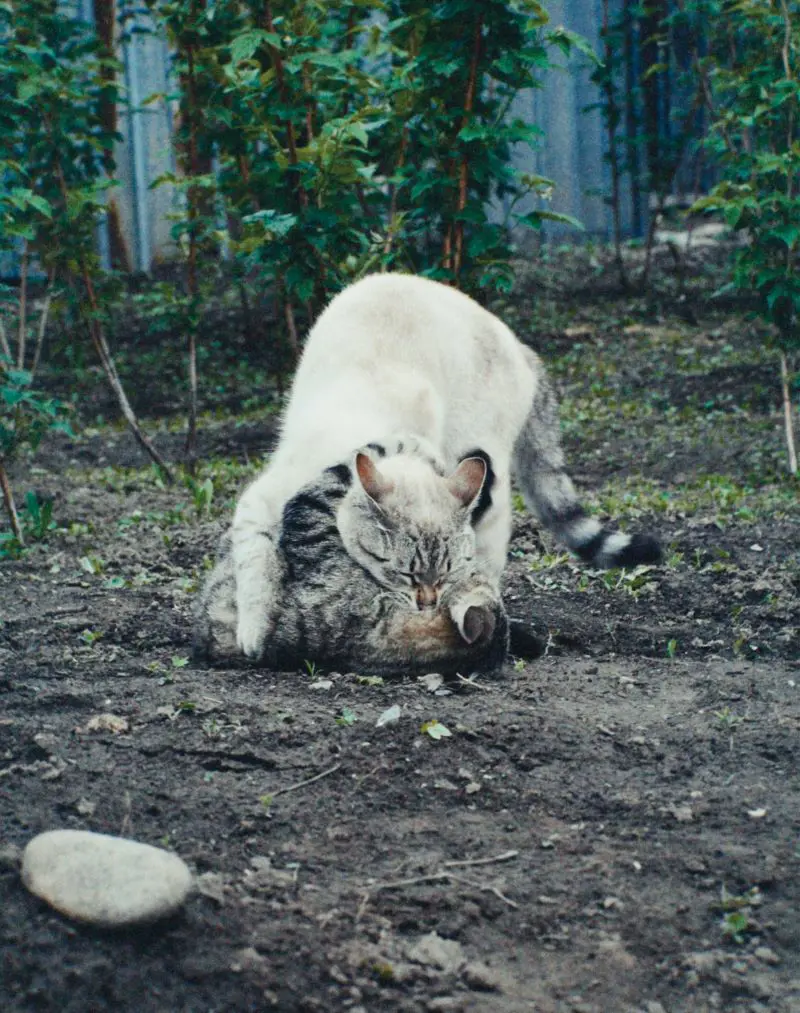
Cats sometimes spray urine up against trees, hedges, and fence posts when they're outdoors. They do it at nose height for other cats passing by, Their spray sends out information about their age, health, activity, and the boundaries set by them. The smell feels like your cat's calling card.
While marking their territory outside, they spray to inform others in the area, that it is their home and help prevent physical brawls. It also attracts female cars to communicate mating readiness.
Cats Spraying In House
When a cat sprays outdoors, it's not a big issue. You may not be aware of it until you see it happening again. However, if your cat sprays in your home, cats might be anxious about something unfamiliar and feel the need to mark their territory with scent.
They usually spray in doorframes, curtains, and window ledges when they are fearful of something they have seen outside. Also, if they spray under chair legs, beds, and tables, they might feel insecure and surround themselves with more of their scent to boost confidence.
Cat Spray Vs Urine
When a cat urinates outside the litter box, it is more urine and you will find urine on horizontal surfaces like rugs or beds. Even with urinary accidents, the urine should retain similar color, odor, and consistency to that of normal ones, whereas the sprayed urine has a more pungent odor, smells musky or fishy, and may be gritty in texture.
Urination is common in cats and is part of their scheduled everyday routine whereas the spraying is more likely to be caused by underlying stress or anxiety, fear of unfamiliar surroundings, and while marking their territory.
Do Female Cats Spray?
Urine spraying can occur in female cats when they reach sexual maturity at 6 months. Male and female cats spray although males tend to be the culprit multiple times. Female cats will often spray more so when in heat, providing information that they are searching for a mate.
Like male cats, females also spray to claim their territory if they feel threatened or insecure. Environmental changes such as moving house, introducing new pets or people, or even changing the home structure can cause stress, leading to spraying because of fearful feelings.
Can Neutered Cats Still Spray?
While most spraying is performed by intact males and females in heat, the sprayed or neutered cats also spray.
It is less likely to happen if the cat is in a stress-free environment and feels that their social and emotional needs are being met. Only 10 percent of males and 5 percent of females will still spray once sterilized.
How To Stop A Cat From Spraying
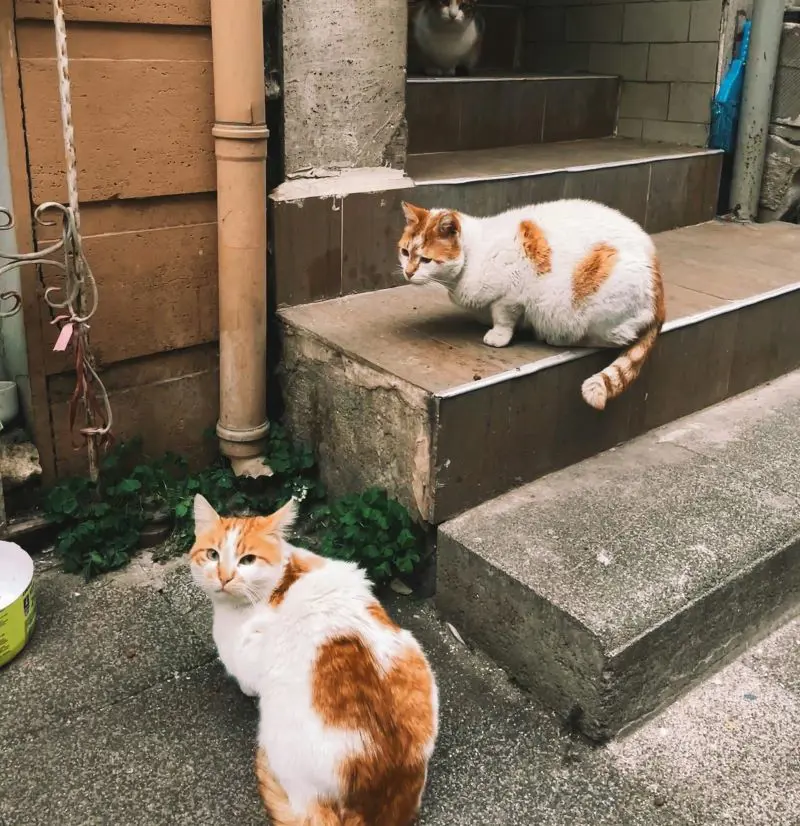
Your cat sprays often inside your house to signal that they are feeling threatened. You shouldn't punish your cat for spraying. If you show aggression towards their behavior without knowing the causes, it can lead to negative outcomes and your feline becomes fearful and more stressed when they see you.
If you are wondering how to address and stop them from spraying, you should first find what factors are causing your feline stress. Sometimes, spraying might be frustrating for owners, but with patience, you can reduce and restrict their behavior.
Here are some ways that may stop their behavior:
Understand The Root Cause
Before applying ways to stop spraying in cats, you should first find out the factors that are causing them to spray urine more and more. It may involve a visit from your nearest veterinarian regarding any medical issues. The other problems include behavioral issues, territorial marking, feelings of stress or anxiety, and readiness to mate.
Veterinary Check-up
A thorough examination by a veterinarian should be done regarding any medical issues. Your vet will likely recommend blood work and urinalysis to check for potential medical causes including urinary tract infections, kidney disease, or diabetes, urine crystals, and inflammation of the urinary system.
Litter Box Maintenance
You should keep your litter box clean, accessible, and in a peaceful location. Many cats prefer covered litter boxes. If there is more than one cat in your home, provide them with multiple litter boxes in your home.
Add a high-sided litter box if possible in the spraying area to give them an appropriate place for spraying. Once reliable, you can slowly move litter boxes to a location, that works better for you and your companion. If they are still triggered, they may continue to spray urine after you move the litter box so you should find the triggering factor.
Help Reduce Your Cat's Stress
Stress can trigger cat spraying, To help your stressful cat, you should first identify and eliminate the stressors in your cat's environment.
Any smaller changes noticeable to your feline can cause stress for your cat including changes in feeding schedule or moving litter boxes. You can provide positive reinforcement training rewarding them for desired behaviors such as using a litter box or scratching a post.
Add Surfaces To Scratch
You can add scratching posts or mats near the spraying areas. They possess scent glands in their paws and spread scent by scratching. Even the declawed cats will go through the motions. Some scratchers suitable for your cat include cardboard scratchers, cat scratching cubes, and cat scratcher loungers.
Also, you can locate scratching posts near areas where your cat loves to scratch or spend time peacefully. Some cats prefer materials. You can also provide scratching posts of different heights to your cat's preferences.
Have Your Cat Spayed Or Neutered
Spaying your cat can be an effective way to reduce spraying behavior. If you have intact male or female cats, getting them spayed or neutered helps reduce the urine spraying.
Neutering cats have a greater impact on spraying, but spraying females can also help. This process decreases the hormone production that drives territorial marking and mating-related behaviors. Also, by altering the hormonal balance, it decreases the urge to spray, leading to a calmer and more relaxed cat.
When To Seek Veterinary Care
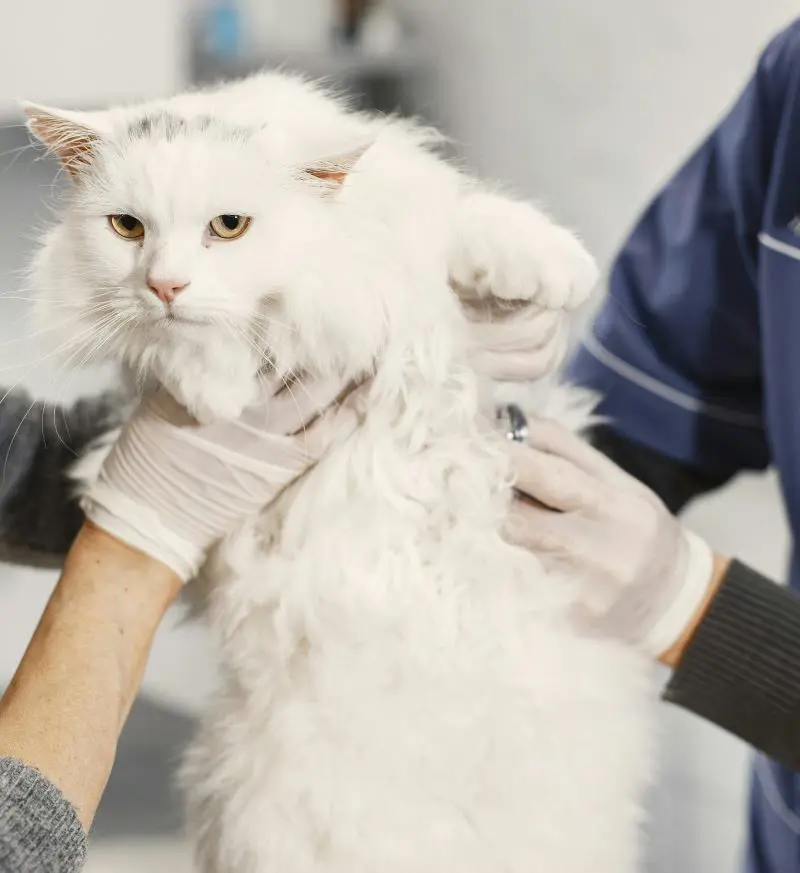
While monitoring your cat's behavior closely, you should be aware of certain signs that indicate veterinary attention.
Here are the symptoms due to which your cat can seek immediate veterinary care:
- Rapid or open-mouth breathing can be a sign of a serious respiratory issue.
- Any form of seizure requires immediate veterinary attention.
- If your cat has ingested poisonous foods or any toxic substances.
- Continuous vomiting or diarrhea, especially when accompanied by lethargy, loss of appetite, or blood
- Difficulty urinating or frequent accidents outside the litter box can indicate a urinary tract infection.
- Excessive tiredness, lack of appetite, or difficulty standing can be signs of illness.
- Any visible injuries, such as wounds, broken bones, or difficulty moving, require immediate veterinary care.
- Sudden aggression, hiding, or excessive vocalization can indicate underlying health issues.
Top Lists


